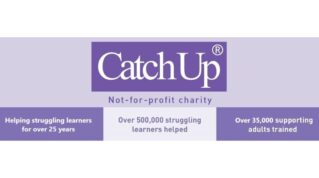The UK government launched its ambitious National Tutoring Programme (NTP) in November 2020. Since then, there have been some well-documented criticisms of the NTP and inevitable challenges in implementing such a large-scale programme. Bright Heart was accredited as an NTP provider in late 2021. We, too, experienced some challenges with the 2021/22 NTP programme. However, this article highlights some of our success stories tutoring at schools. In addition, we cite some positive findings from a recently published Ofsted review of tutoring in schools.
As an accredited National Tutoring Programme (NTP) tuition partner, we ran many successful programmes at schools last academic year. These included:
- NTP tuition partners tutoring;
- NTP school-led tutoring;
- pro bono tutoring; and
- tutoring at independent schools.
As an SEN-focused tuition partner, Bright Heart considers academic and SEMH targets when delivering tuition and evaluating results. SEMH (social, emotional and mental health) targets include engagement, self-esteem and communication. Student achievement was a key factor considered by the judges in awarding Bright Heart the prestigious Tuition Business of the Year award in the 2022 National Tutoring Awards, organised by The Tutors’ Association.
Ark Byron Primary School case studies
To help disadvantaged students after the COVID-19 learning delays, we offered pro bono catch-up tutoring to a selection of London schools.
One school to take up Bright Heart’s free tutoring offer was Ark Byron. Bright Heart Director and Senior Education Specialist John Salmon visited the school. John is a former head teacher. He, therefore, understands the importance of taking the time to understand a school’s culture and identity. John met with Alison Berry, the SENCo. They discussed Ark’s teaching and learning and the different areas of improvement for pupils. Bright Heart offered support in key areas needing improvement for some of the school’s most disadvantaged pupils. By reviewing baseline assessments, the school determined that the most pressing area of need was literacy, specifically writing. This was because many pupils were performing well below their age level. Thus, the school carefully selected small groups of children with the most significant learning delays in years 1, 3 and 5.
Writing intervention programme
Bright Heart selected Andy, a highly experienced, qualified primary teacher, to run the writing programme. Andy was selected based on his qualifications and experience. He had previously worked as a youth leader, a lead learning mentor and a primary school teacher. Andy and John worked together to create a targeted and personalised writing programme.
Careful planning
As a first step, we conducted our own assessment to determine strengths and areas for improvement. These areas ranged from letter formation and the use of phonics for spelling with the younger pupils to aspects such as ideas, sentence fluency, and organisation for the older pupils. We chose narrative writing as the most suitable genre as it allows students to let their imagination flow freely. We identified many gaps in learning. We then formulated a plan to address learning gaps in the programme.
Delivery
Tutoring commenced in November 2020. It focused on 29 struggling pupils. Of this group, 12 were on pupil premium.
During the first session, Andy built rapport with the students. He created a warm, nurturing learning environment where they could feel at ease. This was in keeping with the Bright Heart approach. Week by week, Andy focused on improving one skill at a time. This ranged from helping pupils with the basic punctuation rules, to implementing strategies to help them organise their thoughts. The students worked collaboratively at times and independently on other occasions. Andy engaged the different groups with hands-on, practical activities where they could share their imaginative stories. At times, students would use interactive tools such as IXL, which allowed them to work on specific areas, such as conventions and spelling.
The writing programme was unfortunately interrupted by the pandemic at times. As a result, we had to overcome different challenges. For example, absenteeism increased, and working conditions for everyone at the school were more constrained. However, with the school’s support, we successfully completed the programme in February 2022. Bright Heart provided 56 hours of free tutoring. Andy and John also dedicated many hours to planning and reporting.
Pleasing results
Based on interim testing in July 2021, 10 (33%) of the pupils tutored by Bright Heart had caught up with peers (now met age-expected standards). This included 5 (42%) pupils on pupil premium. Within the control group, 4 (15%) of the pupils had caught up with peers, including 1 (13%) on pupil premium. The control group comprised 26 pupils below standards (8 on pupil premium) who did not receive Bright Heart tutoring. Despite the control group being composed of slightly stronger pupils, Bright Heart’s pupils’ performance was more than double that of the control group. This was a pleasing result demonstrating the effectiveness of our tutoring in driving student achievement. In addition, pupils made significant progress with SEMH targets such as self-confidence.
During the last session in February 2022, the pupils completed another assessment. Despite the programme’s lack of continuity and the pandemic delays, results were encouraging. This was particularly the case as many of the pupils were non-native speakers with SEN who had the lowest scores in writing. Out of 29 pupils completing the programme, 19 (66%) had improved their attainment levels (for example, from working below to working at age-related standards). Although we would have preferred this to have been higher, it was a significant improvement compared to the control group. In addition, it was pleasing that the pupils engaged well and, most importantly, enjoyed the programme.
Commenting on the writing programme, Alison Berry, Ark’s SENCo, noted:
“The children in KS1 and 2 were engaged in the sessions, and the tutor took time to build a rapport with the children, ensuring sessions were pitched to the correct level for attainment and interest. This is a service we would recommend for others, and we would like to use again in the future”
Numeracy programme
Following the successful writing programme, we developed a numeracy programme. It was delivered through the school-led tutoring pillar of the NTP. We selected Harris as the tutor. Harris is an experienced specialist maths tutor. In addition, he is skilled at engaging and motivating pupils. The programme focused mainly on arithmetic, including word problems. Additionally, Harris provided tuition for reasoning, fractions, decimals, percentages and SATs for pupils in Years 2 and 6.
Delivery
We provided tuition to 41 pupils in Y2, Y5 and Y6. Tutoring took place from November 2021 to July 2022. Instruction was aligned with teaching and learning practices at the school. In addition, we regularly liaised with the teachers to adjust targets and strategies accordingly. Sessions involved theory and practical applications of maths to make concepts more tangible and meaningful for pupils. The school reported very high levels of pupil engagement. Progress was measured throughout the programme to ensure attainment in each key area.
Excellent results
Unlike the writing programme, pupils benefited from a lack of disruptions. This meant the programme was delivered as planned. As a result, the pupils tutored made excellent progress. For example, the results of SAT testing for Y6 demonstrated the programme’s effectiveness. Initially, only 1 of the 11 Year 6 pupils selected for the programme met the expected standard. The mean scaled score for the pupils was 93.6 (100 being the expected standard). However, by the end of the programme, 10 of the 11 students had exceeded the expected standard (with a mean score of 105.6). One Year 6 pupil narrowly fell short with a score of 99. However, this was a big improvement compared to the pupil’s initial score of 89.

Southmead Primary School case study
Southmead Primary School approached Bright Heart in April 2022. They wanted a Key Stage 1 phonics programme through the tuition partners pillar of the NTP.
Phonics programme
Literacy was a key area affected by the pandemic. Therefore, the school sought a focused phonics programme to help student attainment.
John Salmon met with the school and key teachers in person. He carefully discussed their objectives and the specific levels and needs of the 25 pupils selected for tutoring.
Lee, a qualified teacher with 30 years of primary teaching experience, was selected as the tutor. She was given a detailed briefing about the school and the pupils. In addition, she received NTP training, which includes safeguarding training. She also spent an orientation day with the different groups at the school.
Individual learning plans
The school selected 13 Year 1 and 12 Year 2 pupils who had not met the expected age-related phonics standard for the programme. To help plan the sessions, Bright Heart and Lee worked together to produce an individual learning plan (ILP) for each pupil. The ILP sets out a pupil’s strengths and areas for improvement based on their own assessment and that of the tutor. It then outlines a series of academic and SEMH targets to be achieved during the programme. Academic targets were based on SMART goals – being specific, measurable, attainable, relevant and time-bound.
Delivery
Lee delivered the programme over two months from early May. Tuition was mainly in small groups of four or five pupils. However, one pupil received one-to-one tuition. The tutor assessed the students’ progress at the programme’s start, middle and end. Lessons were adjusted accordingly to ensure engagement and progress towards targets.
Good results
The programme achieved solid results considering its relatively short duration, with great engagement for most pupils. It focused on hearing sounds, segmenting and blending, and reading longer words and adjacent consonants.
Following the programme, 9 of the 13 Year 1 pupils (69%) and 5 of the 12 Year 2 pupils (42%) had achieved the expected standard. All 25 pupils had improved their phonics.
In addition to the pupils’ academic progress, the tutor built rapport, made the sessions enjoyable, and helped the children improve their confidence.
Commenting on the programme, Tara McBride, Southmead’s Reading Lead and Early Years Phase Leader, noted:
“The tutor was lovely, and the children thoroughly enjoyed their phonics intervention sessions.”
Ofsted tutoring review
The DfE commissioned Ofsted to carry out an independent review of tutoring over 2 years from September 2021. Phase 1 findings recently published (see here) covering 63 school visits from September 2021 to July 2022 are encouraging. It was noted that school leaders, staff and, importantly, pupils were overwhelmingly positive about school tutoring, with many pupils commenting about how much they enjoyed and looked forward to tutoring. In addition, tutoring received in more than 50% of schools was strong (although poorly planned and haphazard tutoring was observed in 16% of schools).
Ofsted noted that strong tutoring depends on several important factors, including:
- High-quality, experienced tutors working closely with class teachers;
- Careful planning and pupil assessment; and
- A well-considered and constructed curriculum.
The main issues cited by school leaders concerning tuition partners (used by 40% of schools visited) included:
- Poor communication and planning to understand pupils’ needs;
- Lack of collaboration with teachers to ensure tutoring is aligned with school curriculums; and
- Lack of feedback to teachers on pupils’ progress.
These concerns were typically more prevalent for remote tutoring.
Interestingly for school leaders, the report highlights that Ofsted plans to inspect all schools by summer 2025 and that “inspectors will consider how schools make effective use of tutoring.”
About Bright Heart
Bright Heart is an award-winning SEN-focused tutoring agency. Its nurturing approach boosts learning and confidence. It carefully matches tutors to pupils and tailors tuition to meet pupils’ specific needs. Its caring tutors are vetted and trained. John Salmon, a director, oversees NTP tuition. John notes that:
“NTP tutoring does work when properly planned and managed, and we encourage schools to promote the programme among pupils and parents alike. Working together with schools and our high-quality tutors, we can help disadvantaged pupils catch up.”
















Your thoughts